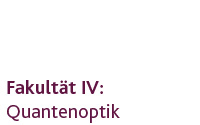Dynamical Decoupling
Protecting conditional quantum gates by robust dynamical decoupling
References: [QIS34]
Dephasing - phase randomization of a quantum superposition state - is a major obstacle for the realization of high fidelity quantum logic operations. Here, we implement a two-qubit controlled-NOT gate using dynamical decoupling (DD), despite the gate time being more than 1 order of magnitude longer than the intrinsic coherence time of the system. For realizing this universal conditional quantum gate, we have devised a concatenated DD sequence that ensures robustness against imperfections of DD pulses that otherwise may destroy quantum information or interfere with gate dynamics. We compare its performance with three other types of DD sequences. These experiments are carried out using a well-controlled prototype quantum system - trapped atomic ions coupled by an effective spin-spin interaction. The scheme for protecting conditional quantum gates demonstrated here is applicable to other physical systems, such as nitrogen vacancy centers, solid state nuclear magnetic resonance, and circuit quantum electrodynamics.
Quantum Gates and Memory using Microwave Dressed States
References: [QIS30]
Trapped atomic ions have been successfully used for demonstrating basic elements of universal quantum information processing (QIP). Nevertheless, scaling up of these methods and tech- niques to achieve large scale universal QIP, or more specialized quantum simulations remains challenging. The use of easily controllable and stable microwave sources instead of complex laser systems on the other hand promises to remove obstacles to scalability. Important remaining drawbacks in this approach are the use of magnetic field sensitive states, which shorten coherence times considerably, and the requirement to create large stable magnetic field gradients. Here, we present theoretically a novel approach based on dressing magnetic field sensitive states with microwave fields which addresses both issues and permits fast quantum logic even in the presence of a small (effective) Lamb-Dicke parameter. We experimentally demonstrate basic building blocks of this scheme to show that these dressed states are long-lived and coherence times are increased by more than two orders of magnitude compared to bare magnetic field sensitive states. This changes decisively the prospect of microwave-driven ion trap QIP and offers a new route to extend coherence times for all systems that suffer from magnetic noise such as neutral atoms, NV-centres, quantum dots, or circuit-QED systems.
